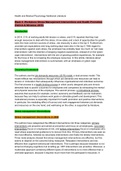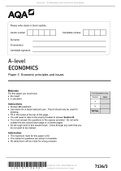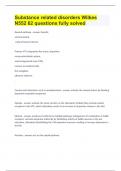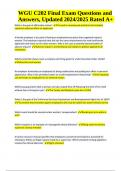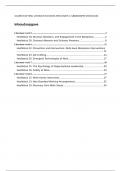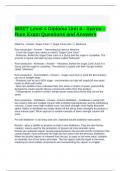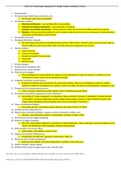Samenvatting
Health & Medical Psychology Additional Literature Article Summary
- Instelling
- Universiteit Leiden (UL)
A summary of the additional literature articles for the course Health and Medical Psychology. Includes: Week 3: Workplace Stress Management Interventions and Health Promotion (Tetrick & Winslow, 2015). Week 5: Health psychology and stress: stress and coping with chronic disease (Maes & Elderen,...
[Meer zien]
